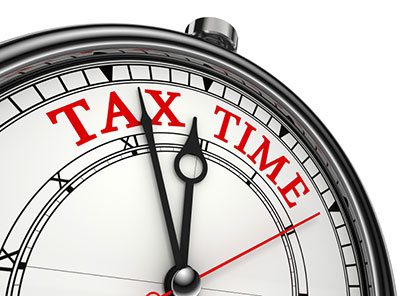Finance experts from London chartered accountant Blick Rothenberg have discussed their thoughts on the forthcoming Autumn Statement and what the new Chancellor should include in his announcement.
The firm’s Autumn Statement newsroom is now up and running, providing tax commentary, technical analysis and an interview service for journalists before, during and after the announcement on Wednesday 23rd November.
Blick Rothenberg’s experts are already looking at what Chancellor Philip Hammond could, should and shouldn’t do:
Stamp Duty
Nimesh Shah, a partner at the firm, believes that the new Chancellor could reduce Stamp Duty, as well as changing the bands and rates.
Following a rush in property sales in March to beat the 3% surcharge for additional homes, the housing market has slowed, reports Shah. The latest Stamp Duty data also suggests that over 40% of the Stamp Duty raised in the last quarter was subject to the surcharge.
Shah also believes that the current Stamp Duty regime is deterring people from moving house.
Property and buy-to-let
Shah claims that the Chancellor should reverse the proposed interest relief restrictions for buy-to-let landlords, as the additional tax cost is expected to be passed on to tenants. A similar tax policy has recently been scrapped in Ireland, he points out.
He adds that the current tax system should be overhauled, to encourage more movement in the property market.
Genevieve Moore, another partner at Blick Rothenberg, claims the Chancellor should update the principal private resident relief, as it is complicated and outdated, and does not cater for modern living patterns.
She also believes that the main residence nil-rate band should be abolished and replaced with an increase to the nil-rate band to £500,000 per person (or £1m per married couple). She insists that the provisions are complicated and prejudiced against people who do not have direct descendants.

Finance Experts Discuss Their Thoughts on the Forthcoming Autumn Statement
Moore also says that the Chancellor should abolish the 8% Capital Gains Tax surcharge on residential property disposals, so that capital gains are taxed at 20%, and that new measures could be introduced to prevent people from incorporating their property portfolios into companies.
Affordable housing
Frank Nash, also a partner at the firm, believes that Hammond should use the tax system to boost the supply of affordable housing, by introducing capital taxation reliefs to incentivise landowners and developers to assist local authorities in meeting their affordable housing targets.
Pensions
Shah states that Hammond could reduce the pension annual allowance from £40,000 to £20,000.
However, Moore believes that he should scrap the pension annual allowance and lifetime allowance, to encourage people to save for their retirement, and instead introduce a cap on the amount that can be drawn tax-free on retirement.
VAT
Alan Pearce, VAT partner at Blick Rothenberg, says that the Chancellor should re-introduce postponed accounting for import VAT. This would allow businesses to offset import VAT via their quarterly VAT returns, rather than having to pay it at the point of importation and claim it back up to three months later, he explains. He believes that this would be a significant administrative easement and would assist cashflow for UK businesses that import goods. Although it would bring a one-off cashflow hit, the Government’s revenues shouldn’t be affected.
He claims that this would allow the UK to compete on an equal footing with other EU countries, notably the Netherlands and now France (who adopted the treatment from 1st October). The countries that operate a postponed accounting regime often promote it as an incentive to do business there, rather than the UK, he warns. This would therefore become more important in the run-up to Brexit and beyond.
Investment
Moore believes that Hammond should fix the Annual Investment Allowance at £500,000 and keep it fixed for five years, to encourage businesses to spend and invest in capital projects.
Non-domiciled individuals
Shah claims that the Chancellor should postpone any changes to non-domicile legislation until the full effect of Brexit is understood. The non-domicile taxation regime has been a cornerstone of the UK’s tax legislation for decades and Britain’s attractiveness as an international centre, he explains. There is a compelling argument to refresh and modernise the regime, but the timing of doing this now does not seem appropriate, he adds.
Brexit
The firm believes that the Government shouldn’t make any changes to the tax legislation until the Brexit strategy becomes clearer.
However, it points out that the Chancellor has been considerably less vocal than his predecessor, George Osborne, in the weeks running up to the Autumn Statement, which could suggest a move to a more quiet announcement.
Traditionally, the Autumn Statement was used to provide a status update and set the scene for March’s Budget. Osborne’s time as chancellor brought more attention to the announcement, by using it to introduce new measures as well.
We will continue to keep you updated on the forthcoming Autumn Statement at LandlordNews.co.uk and on social media.









